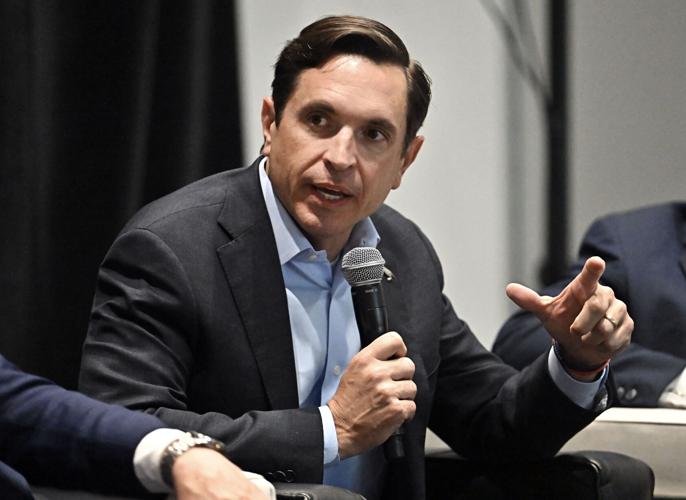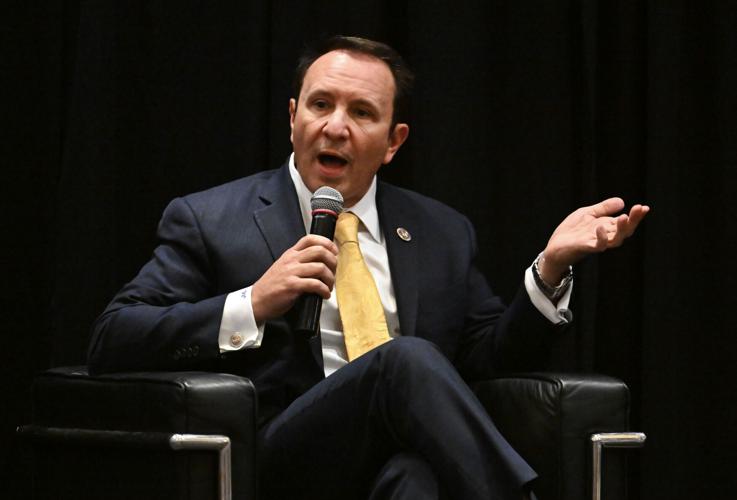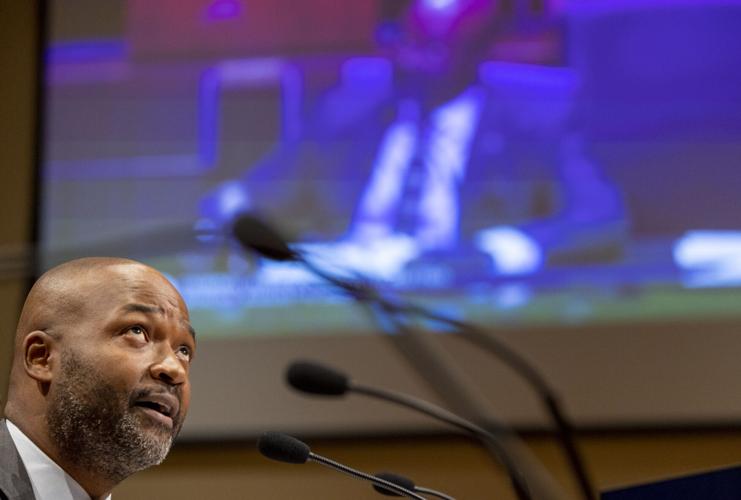John Bel Edwards and Steve Scalise said last week that they’d like to see the gubernatorial candidates from their respective parties refrain from fighting among themselves and hold their fire for the other party.
Well, bless their hearts.
The Democratic governor and the Republican U.S. House majority leader may be the most powerful politicians in Louisiana, but their wishful words aren’t about to come between those beneath them in the pecking order and their ambitions. The big guns' pleas did nothing to curb intraparty skirmishing.
The bigger of last week’s battles broke out among Republicans, when a committee supporting former Louisiana Association of Business and Industry chief Stephen Waguespack took direct aim at Attorney General Jeff Landry.
Landry is the leader in the polls, which is one reason — but not at all the only one — that he’s got a target on his back. He’s got a slew of endorsements, including from former President Donald Trump and the state Republican Party, which weighed in inappropriately early in an obvious bid to create an air of inevitability. But he’s also got a whole lot of critics, including members of his own party who see him as too extreme, too grandstanding, too untrustworthy or simply not up to the job.
Hence the new ad from the pro-Waguespack Reboot Louisiana Super PAC, which aims to chip away at Landry’s bona fides on the No. 1 voter concern, crime.
“Louisiana’s top law enforcement official, Jeff Landry, has failed us,” the narrator says. “Murder, rape, carjackings. Under Landry’s watch, Louisiana is the most dangerous state in America.”
Not to be outdone, a pro-Landry group cut an ad targeting Waguespack, who was once former Gov. Bobby Jindal's chief of staff; it aims to saddle Waguespack with Jindal's highly unpopular stewardship of the state's economy, and calls Waguespack a "mistake we can't make twice."
The temperature was lower on the Democratic side, even with Orleans Parish District Attorney Jason Williams making noise about joining former Edwards transportation secretary Shawn Wilson in the field.
Williams would not be aiming at Wilson, whom he described as a friend, but also at Landry, nemesis to the progressive New Orleans prosecutor. In a statement explaining why he’s listening to those he says are urging him to run, Williams trashed Landry’s race-baiting ads focusing on crime in big cities such as New Orleans.
“To date, he hasn’t meaningfully engaged my office or reached out to me once to get in this fight,” Williams wrote. “He has neglected to institute a single initiative, to address crime in New Orleans or any other parish seriously in need of public safety support. … He has been more concerned with prosecuting women for their reproductive choices and pandering to the far-right Trump base than addressing the critical needs in New Orleans and in Louisiana.”
There’s a real question over whether Williams is serious about joining the fray; Friday morning, he texted that “no decision has been made” despite rumblings that he’d already stood down.
Regardless of his ultimate decision, the prospect is a fascinating one, because if Williams did run, the beneficiary could well be someone like Waguespack.
Here’s why: With one major Democrat in the open primary, that person — Wilson — would likely snag a runoff spot against the leading Republican, who is as of now Landry. Then, given the state’s conservative leanings, Landry would have the edge.
But with both Wilson and Williams on the ballot, they might split the 40% or so Democratic vote and allow two Republicans to make the runoff. That would position Democrats as the swing bloc that could elect the more moderate of the two — in this scenario Waguespack, although there are three other legit GOP candidates running, state Treasurer John Schroder, state Sen. Sharon Hewitt and state Rep. Richard Nelson.
This was the theory on which some powerful Democrats — former U.S. Sen. Mary Landrieu and then-state Democratic Party chair Karen Carter Peterson — urged Edwards to quit the 2015 race so that a moderate Republican could make the runoff with then-U.S. Sen. David Vitter, and presumably win.
What happened instead is that Edwards stuck to his guns and the three Republicans — Vitter, then-Lt. Gov. Jay Dardenne and then-Public Service Commissioner Scott Angelle — bloodied one another so badly that Vitter limped into the runoff, only to be taken down by the guy some of his fellow Democrats figured had no shot. Something similar, if less dramatic, happened when Edwards ran for reelection in 2019, as Scalise mentioned in his plea for peace in the ranks.
“While the temptation always exists, Republicans attacking other Republicans is the only way we can lose this November's election,” Scalise wrote.
Based on history, he’s right, of course, just as Edwards can fairly claim from his own experience that Democrats don’t have to settle for the less conservative Republican.
Those are the sentiments, though, of people who’ve studied the last few wars. The combatants on the field are entirely focused on the next one. It’s no wonder the former are being ignored.
This column has been updated to include the ad targeting Waguespack.



